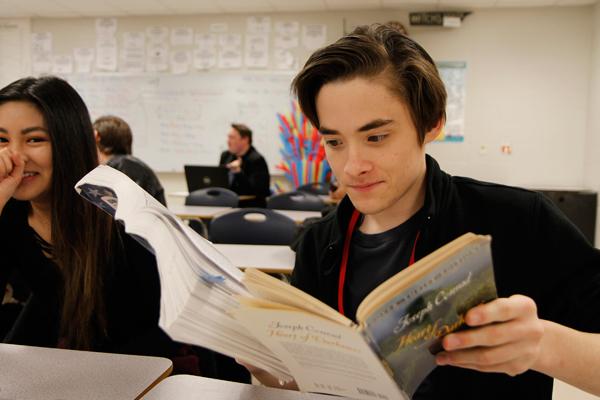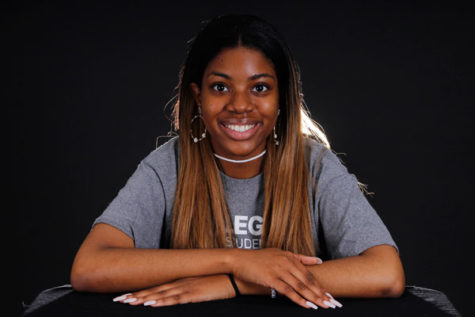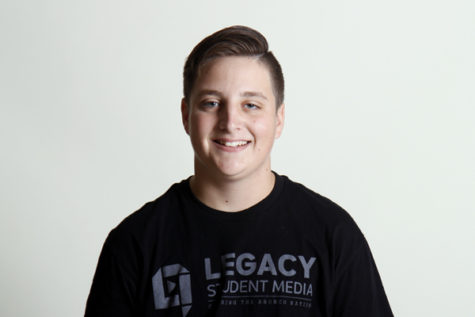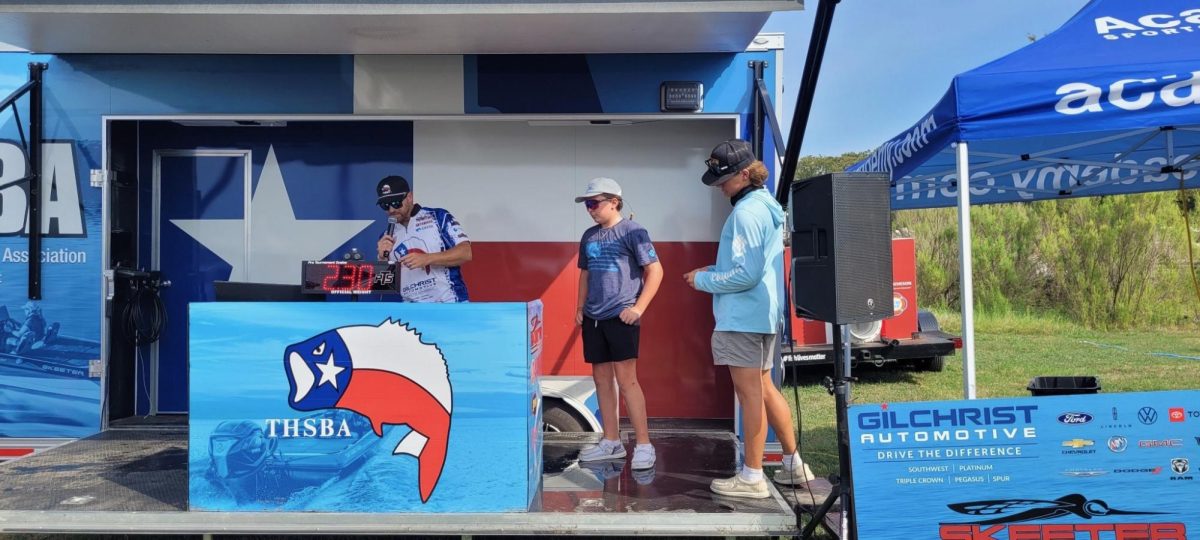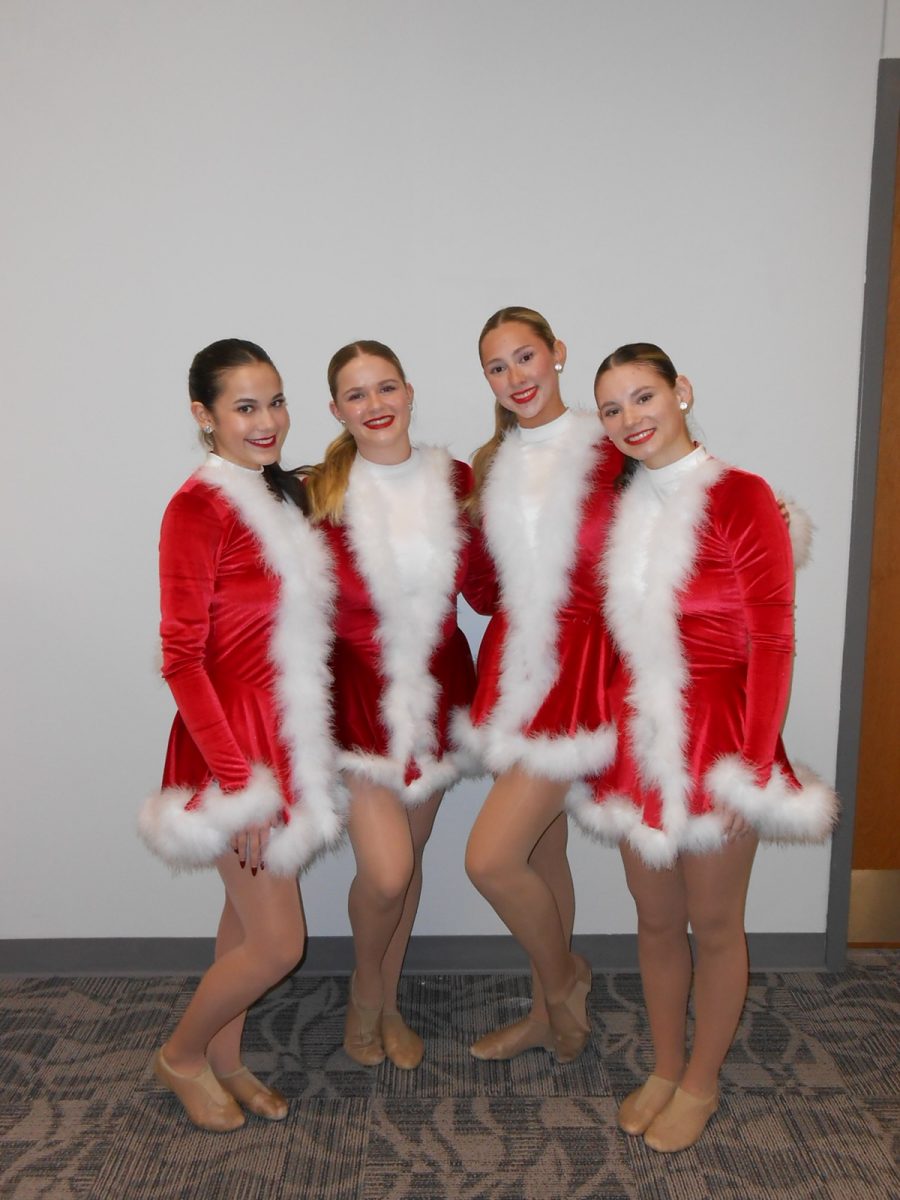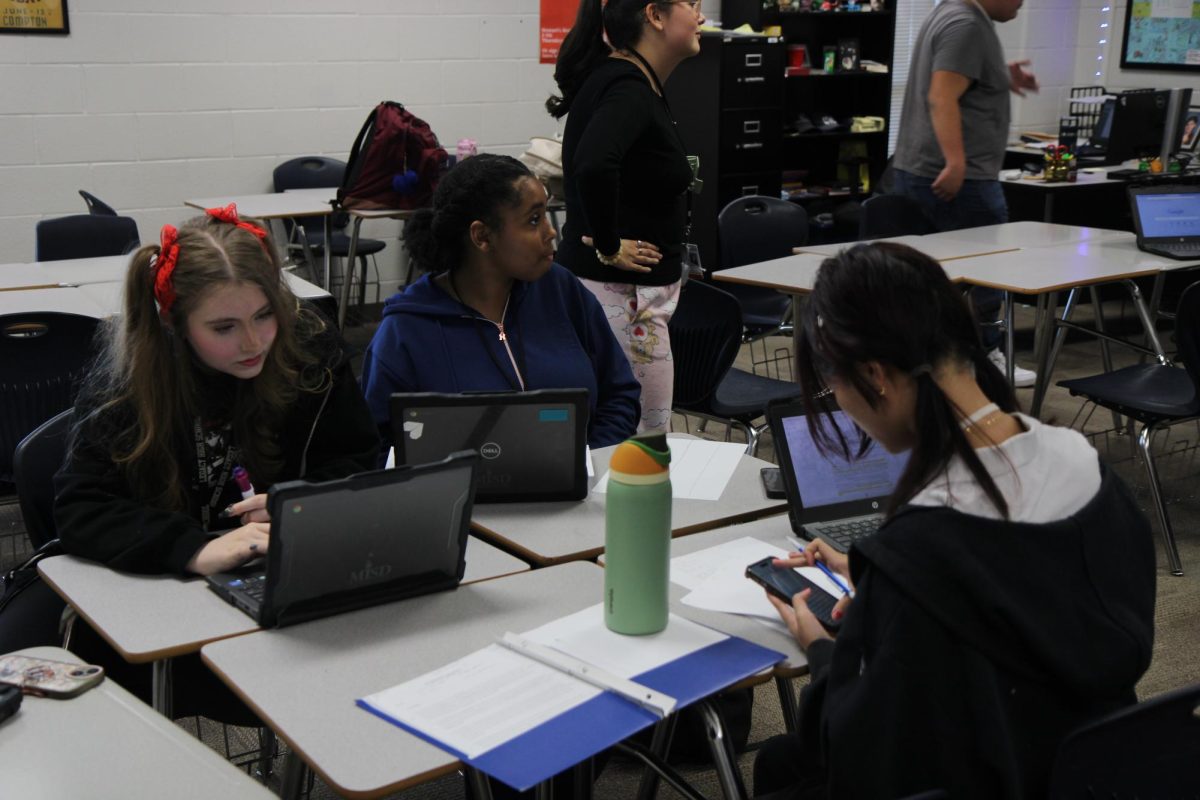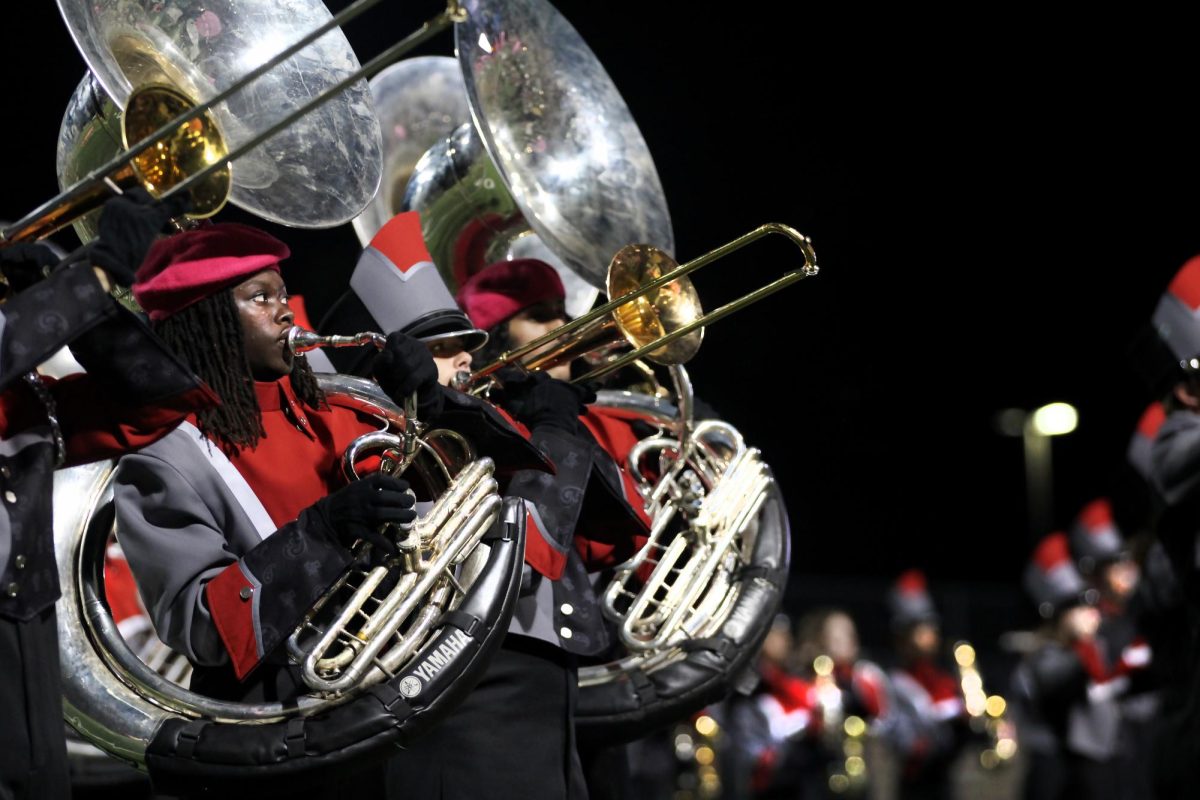Numbers. Formulas. Operation signs. Reading Passages. Art. Music. Essays. Macroeconomics. Research. All things academic and then some. Seems like a lot but Academic decathlon competitors are trained to perfect most, if not all, of these subjects. Ten distinct events measure the academic brilliance of some of our strongest students.
Seniors Nathan Haslam and Margaret Vo competed on Jan. 19-20 in the Regional tournament at Arlington Lamar High School. Haslam placed second in Science with Vo placing third. Haslam also medaled in Social Science.
“I was feeling pretty confident that I, and the rest of the team, were going to perform to the very best of our abilities,” Vo said. “We all studied really hard the days leading up to the competition; we made sure to hold each other accountable in equally participating and contributing to the team.”
The United States Academic Decathlon is a ten-event scholastic competition. Each high school enters a team of nine students: 3 “A” or Honor students (3.750-4.00 GPA), 3 “B” or Scholastic Students (3.00-3.749 GPA) and 3 “C or below” varsity students (0.00-2.999 GPA). This year’s composite team comprised of “A” team members, Nathan Haslam, Katelyn Pasierb, and Margaret Vo, “B” team members Helen Baker, Joseph Castronovo, and Ethan Rozak and “C” team member, Elliot Reed. The competition consists of seven multiple choice tests, two performance events and an essay.
“Two of our members were unable to compete due to UIL ineligibility, so the entire team suffered because of that,” Vo said.
Participants of AcaDec don’t choose subjects they compete in. They must take tests on literature, math, economics, science, art, music, social science, as well as give speeches, get interviewed and write essays. Vo devoted numerous hours of study time to develop her skills. She never competed in a regional competition, however she attended last year’s event as an alternate.
“I prepared by studying the subject resource guides each night until 2 a.m. every night for about a week,” Vo said. I focused most of my studying on my stronger subjects: math, science and literature.”
This year’s AcaDec theme featured Africa with subjects related to the world’s second largest and most populous continent. For example, literature focused on Anglophone African literature, and the students read and analyzed Things Fall Apart by Chinua Achebe.
“I am very driven by competition, so I was determined to perform at the best of my ability,” Vo said. “I was also motivated to learn as much as I could about Africa-it’s such a unique topic that is barely touched upon in high school classes.”
Sponsors Mr. John Davis and Ms. Michelle Hurst, were merely overseers of the students who already had high academic performance instilled in them.
“The kids that are really successful in AcaDec are ones that can set a schedule and stick to it, and ones that can hold themselves to a standard and say I’m going to do “x” by this date, and make themselves do it,” Mr. Davis said.
Mr. Davis felt he made the right decision to be one of the sponsors of AcaDec and has seen students who are determined go very far. Vo has always be driven by the competitive aspect of academics.
“Academia is very prominent in my life,” Vo said. “I realize that I am lucky to be in a well-financed school district with so many academic opportunities to explore and discover my skills. I think it would be a waste of time and money if I didn’t utilize these and take advantage of them.”
Legacy High School’s AcaDec team didn’t advance to state competition.
“Our collective overall team score didn’t make the cutoff, Vo said. It was a huge letdown for all of us.”
AcaDec strengthened the team’s work ethic. Participants in the competition learned valuable lessons they hope will follow them through college and life.
“Being a part of this club made me realize the importance of collaborative team effort,” Vo said. “I’m a very independent person, and I prefer taking on tasks by myself. For the entire team to succeed, every single member had to be a team player. I hope that I built up my collaboration skills this year; I definitely learned to appreciate group work more.”
Vo and Haslam encourage students to join AcaDec, but they say students should keep in mind that it entails a great deal of studying. In the class, students learn how to expand their study skills and hone their minds to grasp difficult subjects. All while enjoying the rigor of the study habits and ultimately having fun.
“When doing AcaDec, have all the fun you can,” Haslam said. “Competing is cool and all, but really the fellowship is what I love about AcaDec. So take it easy, try hard and beat everybody else until you have come to terms with your own failure.”
Vo and Haslam didn’t accomplish their feats alone. With the support and encouragement of teachers, parents and friends, both competitors remain forever grateful.
“I attribute a ton of gratitude to my parents. They are so wonderfully supportive of all my academic pursuits and decisions,” Vo said. “ I would like to specifically thank Mr. Davis and Mrs. Hurst for being very encouraging (and tolerating) coaches. The team would be nowhere without their awesomeness.”
Vo believes the organization taught her how to be more flexible in studying and working with others in college. She cracked down and hard-core studied two weeks leading up to the competition. She read her materials every spare chance she got, about 4 hours a day.
“I don’t think you [need] anything to be successful,” Vo said. “Success is a very fluid term, and it means something different to everyone. But I do believe that hard work and humility are necessary to accomplish anything in life.”



